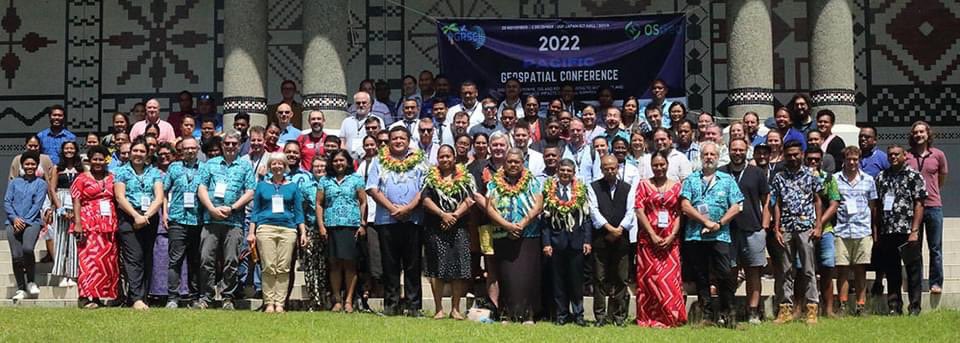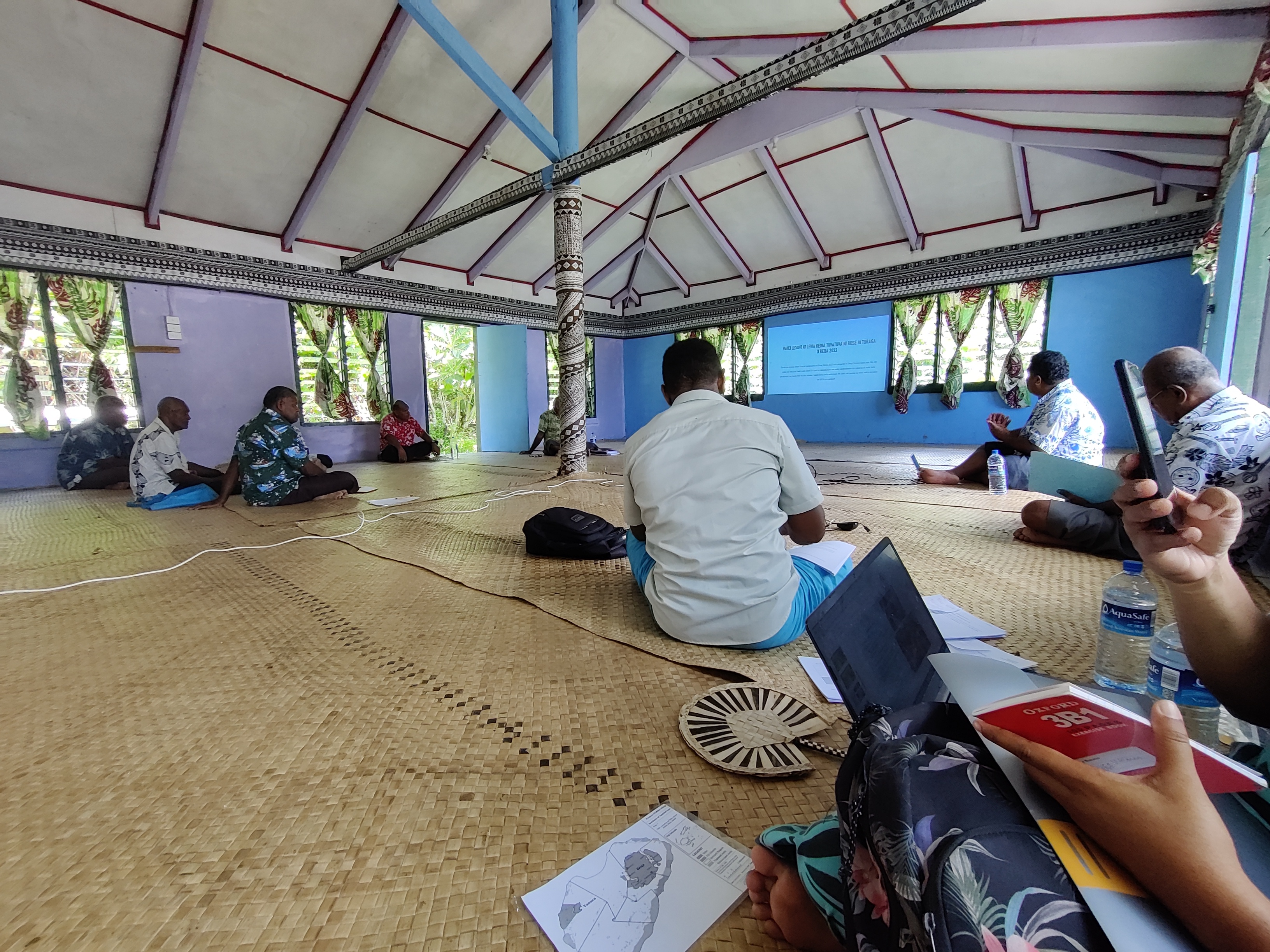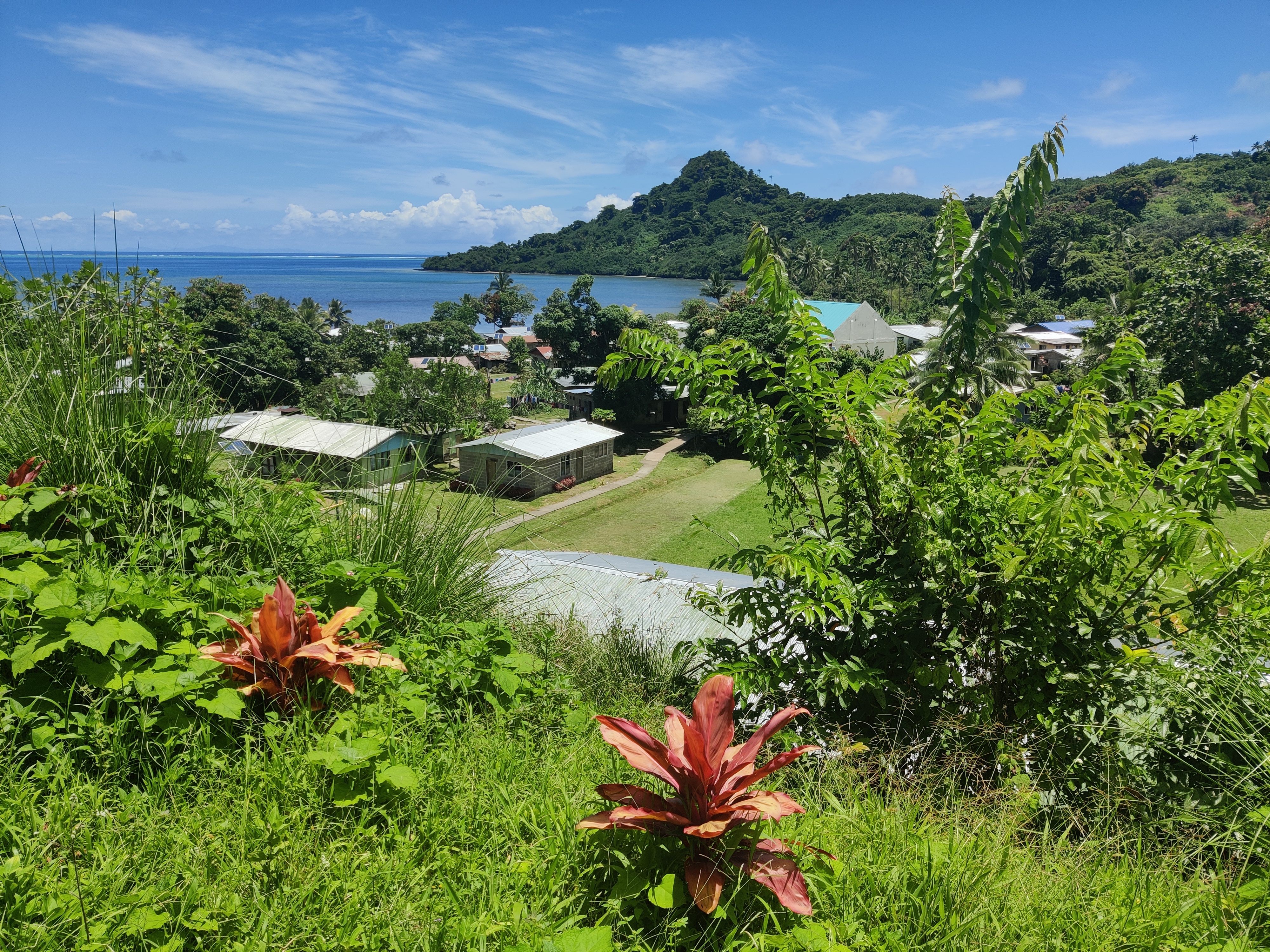At the end of the year 2022, I had the great opportunity to visit Fiji, to participate in the Pacific Geospatial Conference, and to accompany the Pacific Blue Foundation organization.
The Pacific Geospatial Conference, jointly organized by the Pacific Geospatial and Remote Sensing Council and OSGeo Oceania, took place from 28 November to 2 December 2022 at the University of the South Pacific in Suva, Fiji. As geodata specialist at ZMT involved in the regional study on reef passages localization with the project SOCPacific (Principle Investigator Dr. Annette Breckwoldt), I presented the findings of our study on the typology for reef passages at the conference. With presenters from various Pacific Island States with scientific, governmental, infrastructural and NGOs’ perspectives, participation at the conference was a great learning experience on current regional geospatial and remote sensing applications and discourse.

Participants of the Pacific Geospatial Conference 2022. Source: Twitter @PacificGISnRS
For me it is important to enhance my knowledge and skills in open-source geo-information systems (GIS) software to make sure that I can consult ZMT scientists and partners in tools they will have easy access to. Therefore, I enjoyed the opportunity to join workshops on Qfield by LivelihoodAndLandscapes and on QGIS by NorthRoad as part of the conference.
Location of Suva, capital of Fiji, and Beqa Island
Thanks to existing contacts of ZMT scientists I added a collaboration with the Pacific Blue Foundation (PBF) to my visit and meet up with Amanda Ford, a former ZMT scientist currently working at USP. The PBF organization works closely with the villages on Beqa island and supports long-term nature conservation efforts within their Beqa lagoon initiative. During their program wrapping up the 2022 activities and planning for 2023, I was able to map water infrastructure and marine protected areas with the Qfield app in the field. The locations were shown in the field and on the screen by village inhabitants involved in water management and fisheries. After the field trip, I organized and cleaned up the geodata and produced a water infrastructure map for the PBF. I provided the geospatial project with an explanatory video recording on how to continue working with the GIS software and the app independently in the future. The stay with the PBF had informal character and gave me the amazing chance to try out capacity building on site with project partners. After this trip, I feel better equipped to consult ZMT scientists and partners regarding (geo)data collection in the field and am looking forward to consult future projects.

PBF meeting with village representatives on Beqa island.

View on Dakuibeqa village and the bay (with one of the marine protected areas) on Beqa island.
Last but not least I used the occasion of my stay in Suva to meet with representatives from the Fiji National University (FNU) and discuss their approach to research data management. Here, it was interesting to me to learn that our goals and challenges are rather similar despite the distance.
The trip was very special. As a personal experience of course, all thanks to the amazing hospitality of Fijian people, but also in its professional sense. While most field trips themselves are conducted for scientific work, I went on this trip in my role as science-supporting staff. From this short experience, I can conclude that this trip was very meaningful exactly for such type of role, as it gave me a lot of insight into the field environment of tropical marine research. And I had an opportunity under real-life conditions (tropical summer, language barrier, time constraints) to test the ability of being of help with my expertise. It is not comparable with office work and I am very grateful that I had the opportunity to visit Fiji, learn from the people I met and share my skills.
written by Alexandra Nozik | Geodata Specialist | Research Data Service Workgroup | Leibniz Centre for Tropical Marine Research (ZMT)





